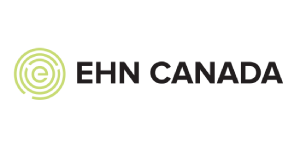Innovative new treatment lets workers recover from addiction or mental health disorders even at home

You spent weeks searching for the right person for the role. Your company spent months training them for the job. And their new colleagues spent years getting to know them and welcoming them to the family.
Now a mental health disorder or addiction threatens to take it all away.
But a new treatment option (one of the first in the country) developed by EHN Canada, a leading Canadian network of premier treatment centres, could allow your employee to get the care they need — without having to leave their job.
It’s called the Intensive Outpatient Program (IOP) and it could be a game-changer for your company and your employees.
But new treatments mean new questions, so let’s answer some of them.
1. How much is this problem costing your company?
It goes without saying that the financial success of any business is a sure-fire way to keep everyone on the job. After all, when it comes to business, the bottom line is, well, the bottom line.
But mental health disorders and struggles with addiction could be impacting the productivity of your employees.
A 2019 report from Deloitte examined how much mental health disorders alone are costing employers.
“On average, mental health issues account for 30 to 40 per cent of short-term disability claims and 30 per cent of long-term disability claims in Canada, with the prevalence of claims for mental health diagnoses climbing by 0.5 to one per cent every year,” says The ROI in Workplace Mental Health Programs: Good for People, Good for Business.
In fact, across Canada, poor mental health could cost the Canadian economy upwards of $2.5 trillion over the next 20 years, says Deloitte.
2. Won’t treating employees cost more than lost productivity?
Not so, according to the report, which also assessed companies that already offer mental health treatment.
The findings: For every dollar invested, “the median yearly ROI on mental health programs was C$1.62 among the seven companies that provided at least three years’ worth of data. Companies whose programs had been in place for three or more years had a median yearly ROI of C$2.18.”
So, not only are employer-funded treatment programs offering a healthy return on investment, but the returns actually increase the longer a company offers treatment options.
3. Why should a company consider online treatment?
Good question. Inpatient treatment has a proven success rate, with results that last. So, why take a chance on online treatment? There are a couple of good reasons.
First, EHN Canada’s Intensive Out-patient Programs allow your employees to continue their work while receiving effective online treatment. There is no need to hire and train a replacement or risk losing a valued employee for good. They will also be able to maintain their commitments to family obligations.
Next, online does not mean subpar. Employees will receive quality treatment from psychotherapists and counsellors specially trained in virtual treatment. They will be able to participate in both individual sessions as well as important group therapy.
But does online therapy work as well as face-to-face treatment? McMaster University published a study in 2020 (Rapid Synthesis: Assessing the Effectiveness of Virtual Care for Adults with Mental Health and/or Addictions Issues) that found “virtually delivered psychotherapy is generally as effective as face-to-face care for people with mood, anxiety and traumatic stress disorders.”
4. What does an intensive outpatient program include?
It’s more than simply online counselling. An IOP is a structured blend of intensive individual and group therapy sessions spanning eight weeks, followed by 10 months of online aftercare designed to help your employees stay on track.
It also includes access to the EHN Online app (powered by Wagon) to help your employees set goals, track their progress and monitor triggers, along with a team of strong clinical experts specifically trained in online therapy.
There is also the flexibility and convenience of treatment from the comfort of home (which, given the ongoing pandemic, is good for many reasons).
5. Why is funding treatment a good business decision?
As an HR professional, you have to balance the needs of both the company and individual employees. An IOP does the same thing.
It is a cost-effective program that will ultimately save your company money. It can also boost overall employee morale and promote loyalty by demonstrating that the company cares about each employee’s mental and physical well-
being.
It is a lower-cost option for employees before they need residential treatment. And you won’t have to replace valuable team members while they are enrolled.
To find out more about IOP and its benefits, visit www.ehncanada.ca/iop-hrreporter.





